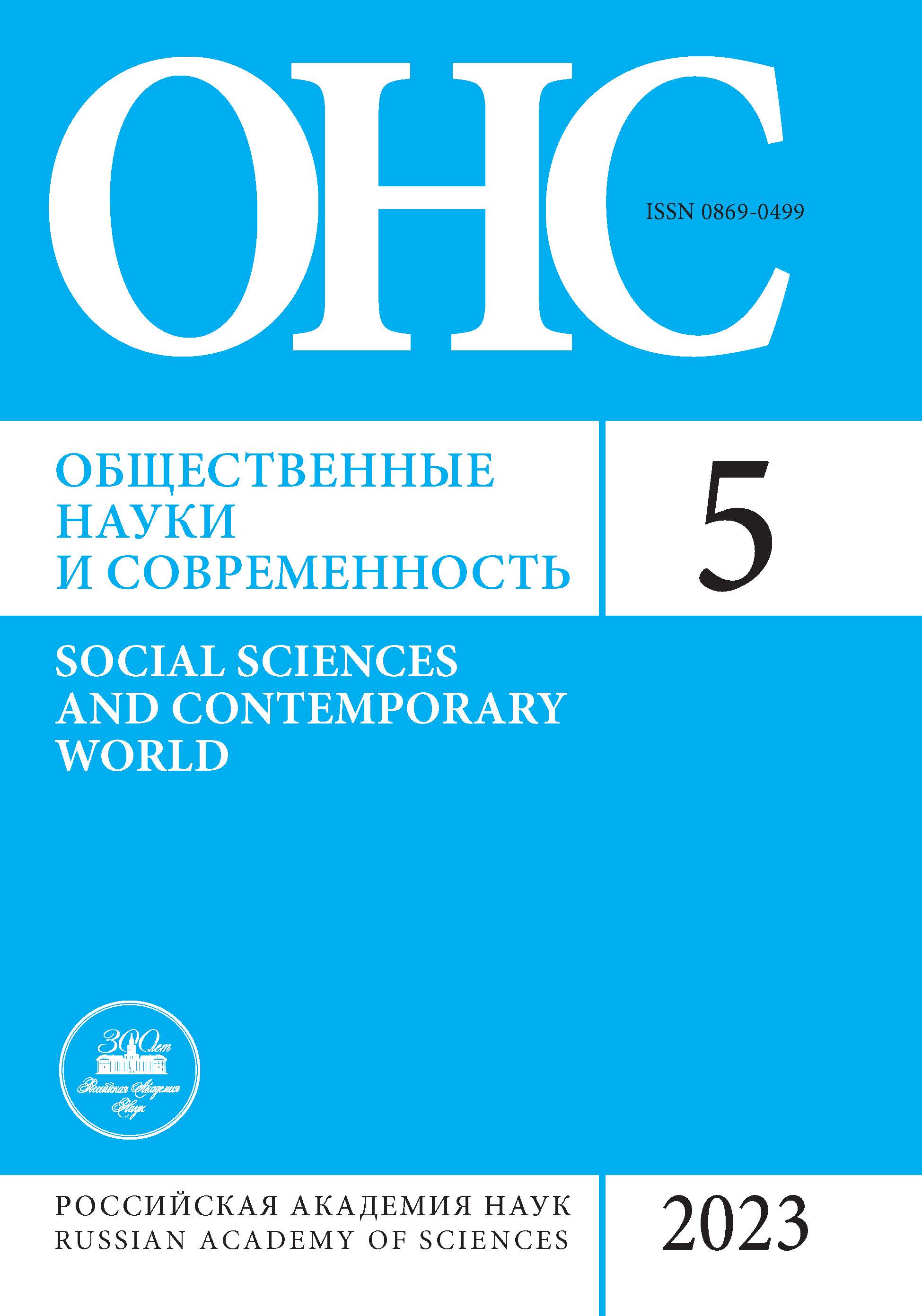Japanese non-mainstream political discourse in the context of the latest Russia-Japan relations
- Autores: Nikiporets-takigawa G.Y.1
-
Afiliações:
- HSE University
- Edição: Nº 5 (2023)
- Páginas: 87-97
- Seção: Articles
- URL: https://freezetech.ru/0869-0499/article/view/675160
- DOI: https://doi.org/10.31857/S0869049923050076
- EDN: https://elibrary.ru/MQJJXP
- ID: 675160
Citar
Texto integral
Resumo
The state and prospects of Russian-Japanese relations after the beginning of the Ukrainian crisis depend on both foreign and domestic political factors, including the views on geopolitical issues of Japanese political elites and also the degree of their independence relative to the US. The official Japanese political discourse is completely consolidated with the American after the beginning of the Ukrainian crisis. The opposition to mainstream discourse within Japan, its effectiveness and significance for Russian-Japanese relations is studied. Analysis of the expert opinion with help of in-depth interviewing, as well as secondary sources and public speeches are presented. The conclusion is that the support of the US and the unified Western narrative is due to the current leadership of PM F. Kishida, as well as the traditional weakness of the Japanese opposition under the dominance of the ruling LDP. The visibility of consolidation is also strengthened by specific conductors of mainstream discourse - the Japanese media. Nevertheless, for a number of representatives of the Japanese political opposition, the Ukrainian crisis has become a weighty argument in criticizing the official discourse. Non-mainstream discourse increases its influence on mainstream, as well as on Japanese public opinion. The research results are also important because in the current Russian-Japanese relations, Russia is willing to know the political actors and their activities, which can be relied on to normalize these relations and promote in Japan the Russian point of view on the Ukrainian crisis and the role of the US in it.
Palavras-chave
Sobre autores
Galina Nikiporets-takigawa
HSE University
Email: gnikiporets-takigawa@hse.ru
Moscow, Russia
Bibliografia
- Горячева Е.А. (2022) Политика кабинета премьер-министра Японии Фумио Кисида в контексте кризиса на Украине // Современная научная мысль. № 3. С. 134-140. doi: 10.24412/2308-264X-2022-3-134-140
- Молодякова Э.В. (2012) Политическая система Японии: возможны ли радикальные перемены? // Восточная аналитика. № 3. С. 32-38.
- Стрельцов Д.В. (2020) Российско-японские отношения: долгосрочные факторы развития // Вестник МГИМО-Университета. № 13. С. 68-85.
- Brown, James D.J. (2022) Russia "Turns to the East" yet away from Japan (2012-2022) // Special Forum Issue "Revisiting Russia's "Turn to the East" amid the Ukraine War" The ASAN Forum. 11.05.2022. (https://theasanforum.org/russia-turns-to-the-east-yet-away-from-japan-2012-2022/)
- Evenett S., Pisani N. (2022) Less than Nine Percent of Western Firms Have Divested from Russia. SSRN. 20.12.2022. 16 p. (http://dx.doi.org/10.2139/ssrn.4322502)
- Fackler M. (2021) Media Coverage of Fukushima, Ten Years Later // The Asia-Pacific Journal. Japan Focus (Special Issue: Legacies of Fukushima). Vol. 19. No. 17. Pp. 1-9.
- Kucukdegirmenci O. (2022) Change is Required in Japan Security Policy. Organization for Research on China and Asia. 12 AUGUST 2022. (https://cesran.org/change-is-required-in-japans-security-policy.html)
- Pempel T.J. (1990) Uncommon Democracies: The One-Party Dominant Regimes. Ithaca, New York: Cornell University Press. 384 p.
- Sawa Y., Saisho R. (2022) Japan // In: Newman N., Fletcher R., Robertson C.T., Eddy K., Kleis Nielsen R.Reuters Institute Digital News Report 2022. Reuters Institute for the Study of Journalism. Oxford, UK: University of Oxford. (https://reutersinstitute.politics.ox.ac.uk/digital-news-report/2022/japan)
- Yennie-Lindgren W. (2018) New Dynamics in Japan-Russia Energy Relations 2011-2017 // Journal of Eurasian Studies. Vol. 9. Issue 2. Pp. 152-162. doi: 10.1016/j.euras.2018.06.002
Arquivos suplementares










